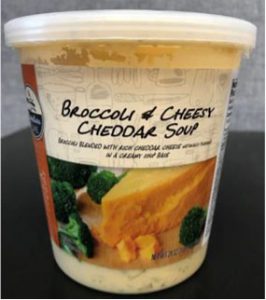The U.S. Food and Drug Administration (FDA) has become aware that recalled Kellogg’s Honey Smacks cereal are still being offered for sale. All Honey Smacks cereal was recalled in June 2018.
 Retailers cannot legally offer the cereal for sale and consumers should not purchase Kellogg’s Honey Smacks cereal.
Retailers cannot legally offer the cereal for sale and consumers should not purchase Kellogg’s Honey Smacks cereal.
The FDA has learned that some retailers are still selling this product. The FDA will continue to monitor this situation closely and follow up with retailers as we become aware of recalled products being offered for sale. Additionally, the public is urged to report any product being offered for sale to the FDA Consumer Complaint Coordinator in their region. More information about the recall can be found at FDA.gov.
The CDC reports that 100 people in 33 states have become ill. There have been 30 hospitalizations and no deaths.
Following discussion with FDA, CDC, and state partners, the Kellogg Company voluntarily recalled Kellogg’s Honey Smacks cereal. The recalled products were distributed across the United States including Guam and Saipan and internationally. Consumers should not eat any Honey Smacks cereal.
As this is an ongoing investigation, the FDA will update this page as more information becomes available, such as product information, epidemiological results, and recalls.
The FDA provided a more detailed a list of foreign countries to which the Kellogg’s Honey Smacks cereal was distributed.. Here is the list of the foreign countries: Aruba/Curaçao/Saint Maarten (Netherlands Antilles), the Bahamas, Barbados, Tortola (British Virgin Islands), Costa Rica, Guatemala, Haiti, Mexico, Panama, and Tahiti (French Polynesia).
The FDA is advising consumers to not eat and to discard any Kellogg’s Honey Smacks cereal. This is regardless of size or “best if used by” dates. The recall notice accounts for all of the product that is on the market within the cereal’s estimated one year shelf-life. However, Honey Smacks products with earlier dates could also potentially be contaminated.
The FDA quickly initiated an inspection at the contract facility where Kellogg’s Honey Smacks is manufactured. As part of the inspection, investigators collected environmental and product samples. Analysis of the environmental samples is now complete, and they were found to be a match to the outbreak strain. In addition, product samples collected and analyzed by state partners were positive for the outbreak strain of Salmonella Mbandaka. As of June 12, 2018, the manufacturing facility is no longer producing product. The FDA continues to work with the firm to address corrective actions.
When the Miami Herald filed a Freedom of Information Act request for the inspection of the facility, the FDA denied the request. The agency claimed two exemptions: “disclosure could reasonably be expected to interfere with enforcement proceedings” and possible disclosure of “trade secret and confidential commercial information.”









